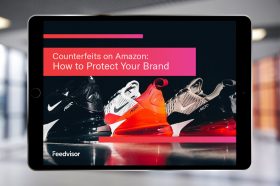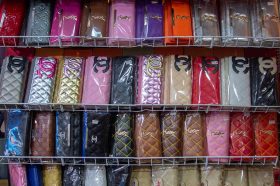Resources - Blog
Amazon Tests Video Calls in Seller Verification Process to Screen Out Bad Actors

Amazon is piloting video conference calls in its seller verification process to screen third-party merchants seeking to sell on its marketplace. The company initially began live, in-person verification measures earlier in 2020, but recently pivoted to video screening due to social distancing mandates amid the COVID-19 pandemic.
Over the last few years, Amazon’s marketplace has seen a growing number of bad actors, or “black hat” consultants, including counterfeiters, algorithm hackers, and listing hijackers, who use illegitimate tactics to manipulate the system on Amazon and cheat their way to the top.
The company in recent months has fallen under scrutiny for its limited oversight of products listed by third-party sellers, many of which are based in China. A 2019 analysis by the Wall Street Journal found over 4,000 items listed on Amazon that have been declared unsafe by federal agencies, are deceptively labeled, or are banned by federal regulators.
In addition, numerous name brands have chosen to end their business with Amazon — Nike and Birkenstock, for example — citing the various challenges associated with selling on the marketplace, predominantly the lack of regulation over counterfeit products.
28% of brands on Amazon cite defense against counterfeits as one of their top challenges with operating on the marketplace.
Amazon’s new live screening effort is one of several measures the company employs throughout the seller verification process to minimize fraud on its platform. To vet the sellers, Amazon’s internal team coordinates a video call and takes steps to confirm that the seller’s ID matches the person on the call and in the documentation provided with the seller application.
The pilot video conference initiative is now operating in a number of markets, including the U.S., the U.K., China, and Japan. To date, more than 1,000 sellers have attempted to register an account through the pilot program, according to TechCrunch.
The problem of fraudulent behavior on Amazon returned to the limelight amid the COVID-19 crisis, during which countless third-party sellers and product listings were found to be tripling or quadrupling their prices on essential items or citing unsupported health claims about their products’ ability to combat the coronavirus.
In March, the company said it had suspended more than 3,900 U.S. seller accounts, removed more than 530,000 products from its platform over price-gouging, and had taken down “millions” of items that made unsupported claims about their ability to protect and fight against COVID-19.
In addition to video conferencing, Amazon also uses proprietary machine-learning algorithms to vet sellers before they are approved to sell on the marketplace. According to Amazon, the system analyzes hundreds of data points to identify potential risks, such as whether the seller is related to another account that was previously removed from the marketplace for fraudulent behavior. Amazon said these processes prevented 2.5 million accounts from listing items on the platform in 2019.
Learn what Feedvisor can do for your business.
When you partner with Feedvisor, you automatically receive access to our true, AI-driven technology and hands-on team of e-commerce experts. Contact one of our team members today to learn more about our end-to-end solution for brands and large sellers on Amazon, Walmart, and e-marketplaces.




